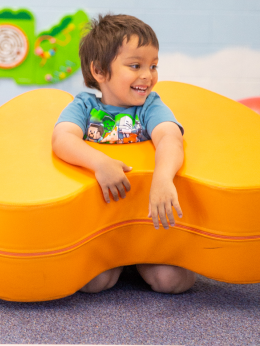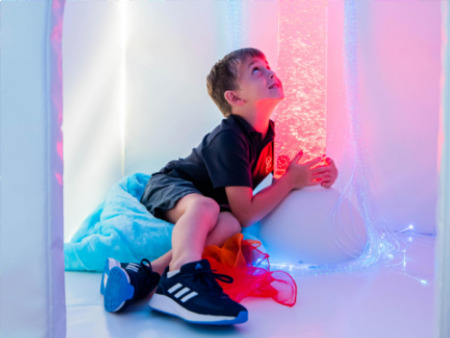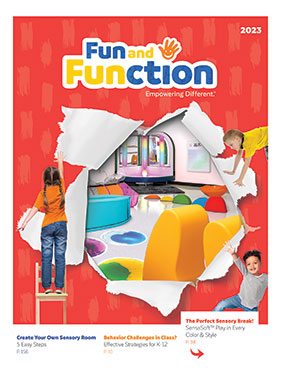One of the most elevated human qualities we have is the ability to attend. Our ability to attend is not necessarily measured by focusing on a computer game, television program or something that is highly engaging or shocking. Rather it's the ability to attend at will.
Most of us struggle with how to improve, engage or encourage attention. The difficulty can increase with neurological challenges including ADHD. Let's take a look at some tips and tricks that may help improve the ability to focus, attend and concentrate.
1) Stare at an Object
Try the 2-minute challenge. Choose an object in the room and stare at it for 2 minutes. If your mind wanders off, it's ok: just bring it back. Set a timer and practice this daily. You might want to pick a favorite weighted stuffed animal or furry friend as the object for a younger person working on this skill.2) White Space
Close your eyes. Now imagine you are in a room. All you have is a paintbrush and a bucket of white paint. Paint the room white. Don't rush. Take your time.3) Lighting
Sensory rooms are known for their ability to help with focus and attention. Create a dark room or closet and put a lava lamp, gel tiles, bubble tube or fiber optic bundle inside. This is a great way to calm, relax and learn to focus.4) Memory Game
Memory games are great for learning to attend. You can use a deck of cards or a boxed memory game.5) Freeze Game
Put on your favorite Space Explorer, move around the room and yell freeze. This game encourages listening skills and voice attention. You can add to the moves, such as "Freeze like a dog," or "Freeze like a tree."6) Where's the Timer?
Take an auditory timer, set it for one minute, and then hide it. When it goes off, ask your child where the sound is coming from. This game will encourage auditory attention.7) Game Time
Grab your favorite tabletop game or puzzle and learn to follow directions, keep track of your turn and stay attuned to the game. It takes practice. For those with the wiggles, try a weighted lap pad or vest while playing. Don't give up.8) Eye Hand Games
Playing toss, catch, kickball, basketball or soccer encourages eye hand coordination. You can also use a hand held eye-hand coordination toy. It takes practice, but good eye-hand coordination requires focus and attention.9) Chores
Chores help children to learn contribution as well as encourage heavy work and attention. Add in some music and you can help your kids attend to their chores with rhythm.10) Ask Questions
This applies particularly well to story time, learning a new lesson or school assignment. And it is particularly important for kids who have more trouble attending. Ask questions regularly to maintain and build attention. Don't assume they heard or understood. Keep assessing.11) Act It Out
Have your kids act out something they learned. Bring out their inner drama queen. They will pay better attention and remember.12) Describe It Out Loud
Ask your kids to tell you out aloud what they learned. Repeat. Repeat. If they know they need to explain it, they will focus more.13) Exercise
Exercise is great for the body and for the brain. Movement creates endorphins and blood flow to the brain, helping to stay on task.14) Breathing
When things get tough, stop and take a breather. Take 5 deep breathes in and out to bring your attention back to yourself.Similar posts
























Comments